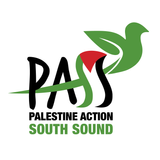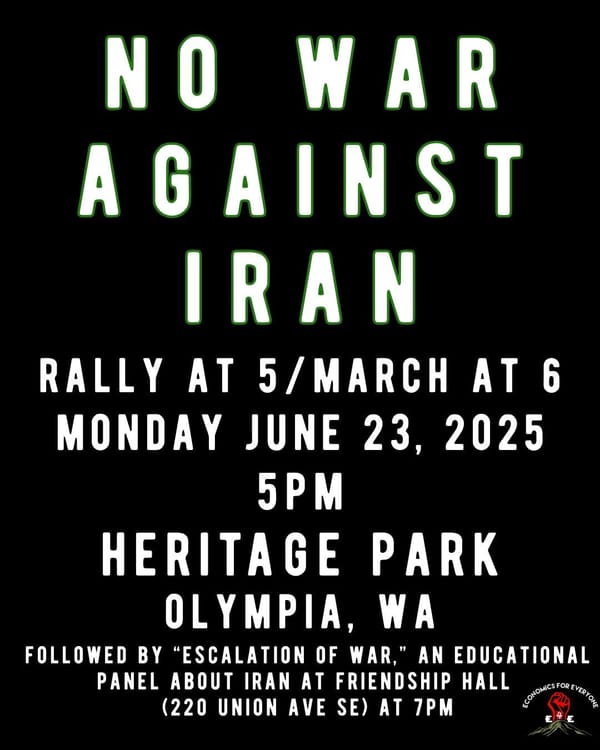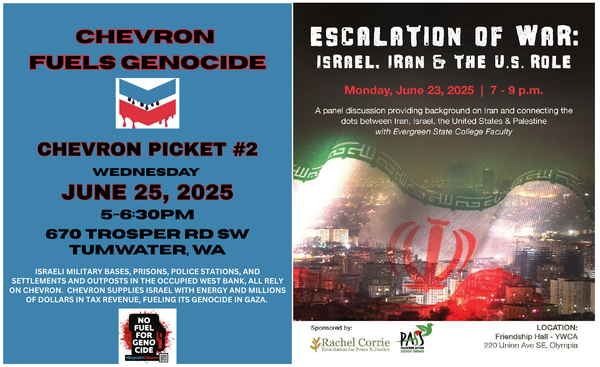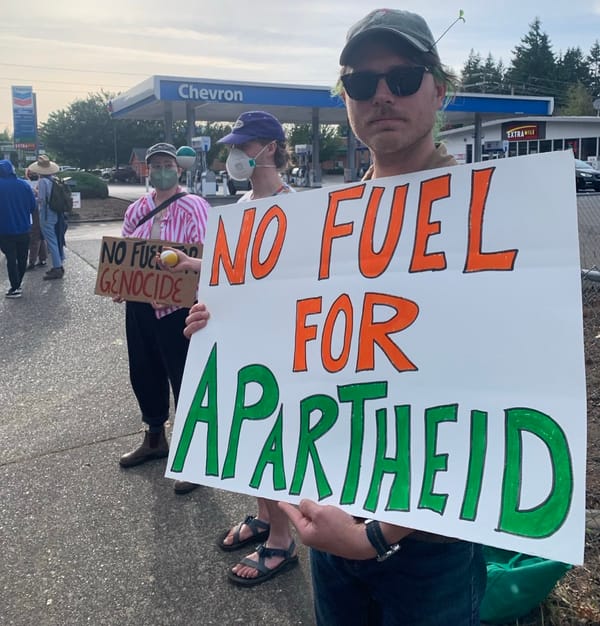Nourished by Our Roots: PASS/JVP Olympia/RCF Event at Evergreen
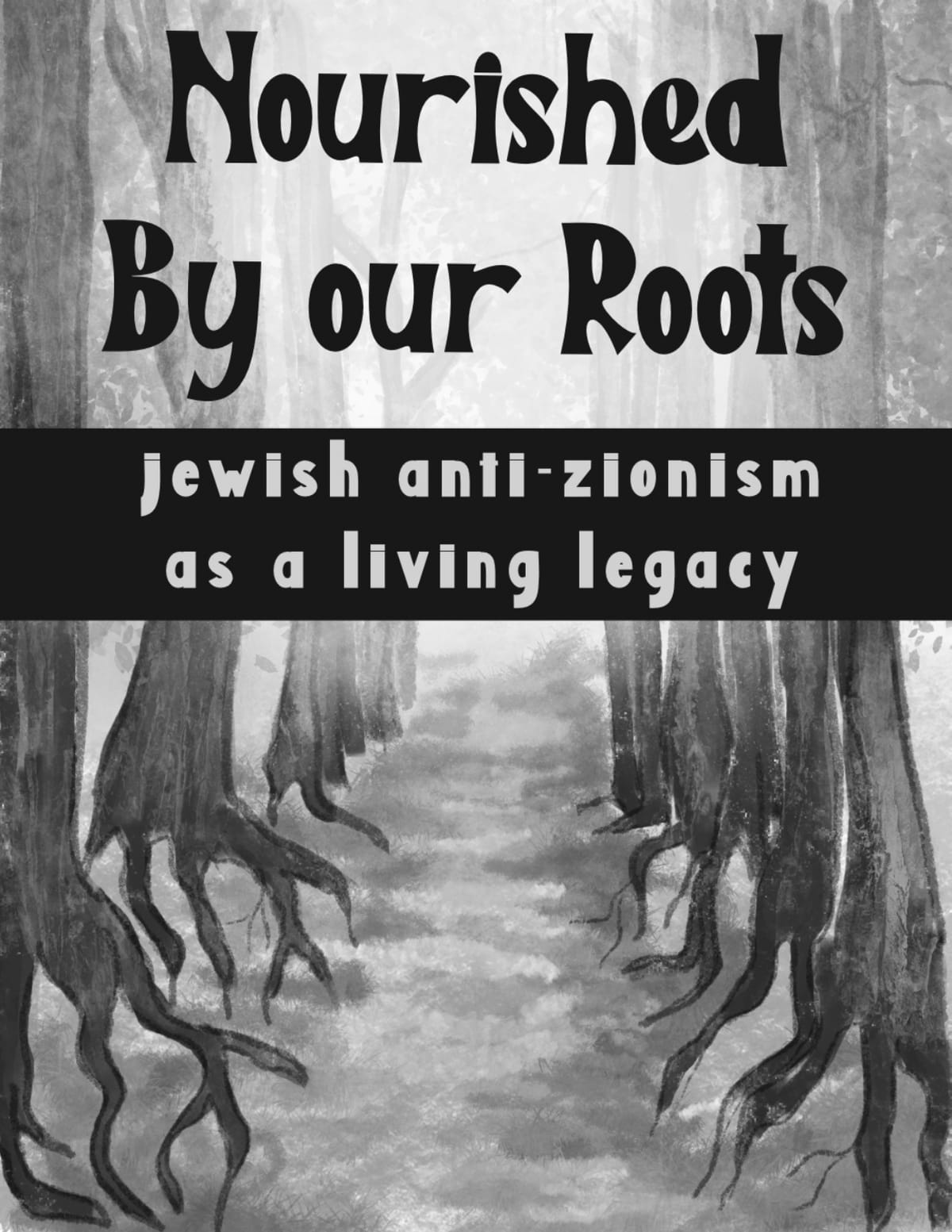
On Wednesday, November 13, PASS collaborated with Jewish Voice for Peace and the Rachel Corrie Foundation to host Nourish By Our Roots: Jewish Anti-Zionism as a Living Legacy, a two-hour workshop on anti-Zionism, Jewish identity, and movement building. Shortly after forming a small team with the broad goal of addressing Jewish anti-Zionism, the organizers were asked to offer this workshop to support Jewish students, faculty, staff, and Jewish allies questioning or departing from Zionism. Over 30 people attended, with many Evergreen students, staff, and faculty represented. The core of the workshop was a 27-page document compiled by the facilitators to guide the thinking and discussion of the evening. A rich conversation ensued, followed by calls for an Evergreen chapter of Jewish Voice for Peace. One participant, a longtime faculty member, noted that they had “been waiting 19 years, two months, and 27 days for Jewish Anti-Zionist organizing to come to Evergreen. It's worth the wait.”
Evergreen was the first American university to reach a divestment agreement with student organizers, an accomplishment that was achieved after students in Evergreen’s Gaza Solidarity Encampment coalesced to apply significant pressure on the university’s administration. As the divestment process nears its 6-month anniversary, the need for an organized and well-supported student movement continues to make itself clear. Across US college campuses there is significant pressure to silence anti-Zionist and Palestinian perspectives. Students, staff, and faculty will have to be ready to face rigidity as they draw nearer to a final agreement later this school year.
The five organizers of this event--three from JVP, one from PASS, one from RCF, all Jewish, all current or former Evergreen students/professors--designed the workshop to support the Evergreen Jewish community in asserting that rejecting Zionism is not anti-Semitic or un-Jewish, but rather a visible and historically precedented part of Judaism. To help participants conceptualize Zionism and resistance, everyone was presented with a 27-page document that addressed the issues of Zionism and Palestinian liberation in five separate sections: 1) Zionism Before 1948, 2) The Nakba - Displacement of Palestinians & Occupation of Palestinian Lands, 3) Gaza’s Memories of Violence and Resistance, 4) Gaza 2023-2024: Resisting Genocide, and 5) Exodus from Zionism.
The workshop drew on the ancestral knowledge of anti-Zionist Jewish ancestors such as Leslie Feinberg, Melanie Kaye/Kantowitz, Naeim Giladi, Shatzi Weisberger, and Abraham Serfaty, and added the voices of contemporary Jewish leaders as well as Palestinian scholars, poets, and activists. Splitting into five groups, each assigned one section, we collectively digested the material before returning to the large group to share reflections on the text and general thoughts about our current political moment. Discussing Palestine through a Jewish lens directly challenged the false notion that the tensions between Israel and Palestine originate from a fundamental conflict between Jews and Muslims. Instead, our discussions placed Zionism in a colonial context, understanding it as part of a global imperial system that enriches those already at the top by dispossessing the entire Global South--namely, Palestine.
More organizing, more collaboration, movements that cut deeper, embedding ourselves with each other: these were our calls to action. Students were connected with local and national organizations, and everyone came away knowing that our liberation will be a measure of our solidarity. The mood was reflective, connective, and assertive, leaving a sense that the undercurrents at Evergreen are flowing away from Zionism; that if given the opportunity, they will breach the surface and call with a clear voice: “Free Palestine!”
